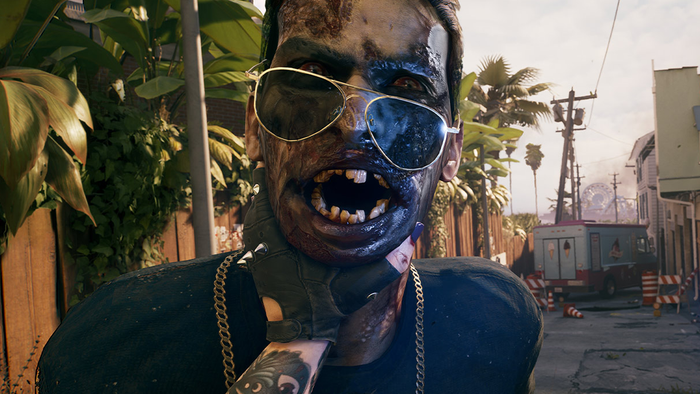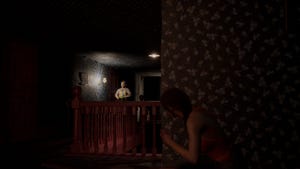
Featured Blog | This community-written post highlights the best of what the game industry has to offer. Read more like it on the Game Developer Blogs.
2013 or: How I Learned to Love the Indie(s)
2013 was an exquisite vintage full of flavorful indie games rounded with a light note of AAA blockbuster. Why I think indie games reached a completely new level this year? My personal "Best of 2013" explains.

The last level of 2013 is coming to an end. There's only one last challenge to overcome (eating all the Christmas food without bursting) until we can lean back and enjoy the firework during the end titles. So how was 2013? How was the gameplay? The graphics? The story? Here are my six (a number much more likeable than 5!) most favorite games of 2013:
Rayman Legends
A level perfectly choreographed to Eye of the Tiger! Do I have to say more? For this and the other music levels alone Rayman Legends would have made it to my list. But there are so many more levels in this game that are chock-full of creative ideas. Every time you think "Okay, now I've seen it all" the next level will introduce just another gameplay element that fits perfectly to the underlying mechanics. And then there are the 8-bit bonus levels. Again, I thought "Okay, these are just the previous levels in a slightly different look", but Ubisoft proved me wrong again. These levels are simply insane - in a completely positive way!
Rayman Legends is the first Jump 'n' Run in years in which I came back to levels I already completed, because they were so much fun. One of the foundations for this level of enjoyment was the incredibly smooth learning curve. Yes, people who claim Super Meat Boy would be too easy might not be challenged enough, but I think the designers have done a great job in training the player: Taking him from really simple to really hard without touching the spheres of boredom or frustration.
And best of all: Rayman Legends has a really well-done co-op mode. My wife and I played the game on the Wii U. Most of the time she was controlling Murphy via the GamePad - clearing all the obstacles out of the way - while I was doing the jumping and running. For us this worked much better as for example the co-op in Donkey Kong Country Returns, where usually one of us was slower or faster than the other and thus had problems to stay within the field of view. In Rayman Legends we both had our tasks that didn't interfere with each other. The only interfering took place in the level selection screens - the sound of slapping each other is just too damn good! *slap*
The Stanley Parable
This game will probably appear on a lot of "Best of"-lists this year and it absolutely deserves it. There hasn't been a game with such intelligent and self-reflective humor before. As a designer who thinks a lot about storytelling in games I cannot praise The Stanley Parable enough for portraying some of the most recurring flaws in interactive stories in such a perfect way. This parody is the ideal learning course for aspiring game designers as it makes you feel the pain of players whose decisions are not at all respected by the game.

Did you unlock the achievement "Click on door 430 five times"? I did, of course, while continuously shaking my head and thinking: Isn't it scary what people do for a stupid icon of 50 x 50px? The Stanley Parable does not only criticize games and their designers, but makes fun of the players at the same time.
While criticizing fake choices in game design The Stanley Parable itself offers an impressive amount of "real" choices. I tried to open every door, interact with every object in every room and I was really surprised what the game had to offer. Climbing circuitous over desks to jump out of a window = breaking the game? Nope, it's all part of the experience.
Gone Home
As game designer it can be very hard to get immersed in a game without thinking about its underlying mechanics all the time. Gone Home made me forget my analytical thinking for a while - something not many games accomplished in recent years.

Gone Home has the most mature story in a game I have ever experienced. Homosexuality, parental conflicts and even suicide are topics that Gone Home touches in a very emotional way. But what I like most about Gone Home is its clever usage of environmental storytelling. The game might have only one (relatively small) level, but this house is so brimful of story that at the end of the game - even though you never met any of its inhabitants - you seem to know all of them better than any of your neighbors in real-life. The intensity of its narrative is achieved by the way Gone Home lets you explore all its tiny story bits by yourself. Instead of serving a complete plot the game just provides you with small fragments and leaves it up to you to connect them and draw your conclusions, which leads to a level of involvement otherwise impossible.
And for those of you arguing "But it's not a real game!" - Here, somebody fixed that for you:

Image source: Twitter
But honestly: Who cares what we call it? It's a great interactive experience and that's all that matters for me.
Brothers - A Tale of Two Sons
While The Stanley Parable and Gone Home were discussed nearly everywhere Brothers - A Tale of Two Sons didn't quite get the attention it deserved. And that's sad, because it did so many things right. First of all and most obvious it looks extremely good. A unique and very consistent art style, wonderful lighting and great level design make you feel like you fell right into a book of fairytales.

The Stanley Parable and Gone Home had great stories without showing any characters. Brothers even set words aside. The characters communicate in their own pseudo-language and still you understand everything simply through their tone and gestures.
The same goes for the intuitive puzzle design - there's no need to explain things. After understanding how to control the two brothers individually with the left and right thumb-stick everything else feels completely logical. It's nice to see how everything else in the game is centered around this innovative control scheme.
Grand Theft Auto V
A lot was said and written about GTA V in the last months, but whether you liked the torturing scene or GTA in general, everybody has to agree that the amount of highly polished content in this game is simply astonishing. Bringing all these pieces together to create such a vibrant and consistent game world deserves respect. But there are better reasons why part V is in my opinion the best installment of the series.

First of all, the main characters finally fit perfectly to the destructive gameplay. In previous installments the characters behaved completely different in cutscenes than they would during the interactive parts. Michael and Trevor with all their obsessions and psychoses may be a bit over the top, but in the context of GTAs gameplay they are the most believable characters I could imagine.
Second, the parody of modern western lifestyle is just brilliant. The GTA-version of a Facebook office. The elderly British stalker couple. All the hipster talk between Michael and Trevor. The Yoga teacher. Michaels kids. The TV show Fame or Shame, basically the whole fictional city of L.A.
And third, GTA V uses methods of episodic storytelling to great success. A lot of the main missions reveal just a little bit more about Michael's and Trevor's past or at least give you some new hints, while also bringing up new questions at the same time. This overarching plot ties the missions together nicely and holds up tension and interest throughout the whole game. It's clever "information management", which TV series are already doing for years. And as I explained in a previous post I think these structures are a perfect fit for games, too, so I'm happy to see them in action.
Papers, Please
Last on this completely unsorted list, but definitely not least: Papers, Please - for me by far the biggest surprise this year. As a colleague told me about a game, in which you play a customs officer and basically just stamp passports all day long, I laughed and said it sounds like the most boring thing I could imagine. But he really seemed to have fun with this strange game, so I took a look at some screenshots. This didn’t help to convince me, either. Then came a steam sale and I finally overcame my doubts. And well, it’s just brilliant. If I would be in the position of handing out awards, Lucas Pope would definitely get the one for most innovative game mechanics. Turning such a boring activity (no offense, customs officers!) into something this fun is genius!

Papers, Please stresses you out and puts more and more pressure on you. Every day you receive new orders. Does the traveler have all the required papers? Does height and weight fit the numbers on the passport? Are any of his papers expired? Does he even look like the guy on the passport? Ok, let him pass. Oh no! He was on the list of wanted criminals that was hidden by all the other documents on your desk! You messed it up and receive another penalty decreasing your mingy salary - another night without enough food for your family. And believe me, even though you never get to see any of your relatives it feels horrible whenever you fail to earn enough to pay for rent, heat and food.
Papers, Please is not a game that makes you feel powerful, the contrary is the case: You feel like a very small number in a giant bureaucratic system. Some travelers will beg you for help, but the consequences for your family always make you think at least twice before breaking any rules. It’s really a moral dilemma.
Looking at it from a rather practical standpoint makes you also admire the whole user interface. You have to do everything manually. Placing the documents on the table, turning pages in the rule-book, selecting information that don’t match, fetching the stamps, stamping, handing all the papers back to the traveler - the mouse-cursor is constantly busy. You want shortcuts? Well, work hard enough and you might be able to buy a few. What sounds like against all rules of good usability works perfectly to bring you in a state of flow. I could go on like this for quite some time, but in the end Papers, Please is a game you have to play for yourself to fully understand its brilliancy.
2013 or: How I Learned to Love the Indie(s)
When I look at my list and compare it to what I would have expected it to look like at the beginning of this year, I’m quite surprised. SimCity, Tomb Raider, Dishonored, BioShock Infinite - these were the games I had on my list, but The Stanley Parable, Gone Home, Brothers and Papers, Please stole the show. They all prove that it's not just the budget that makes a good game.
And most importantly, they all show that indie games can be so much more than procedural-generated content and pixel nostalgia. In the last years I often struggled with indie games as I’m not a big fan of just another pixel-art platformer with a slight twist and a learning curve screaming “I’m so hardcore!”. This year more and more indies seem to finally break free from resurrecting “good old games” and try to discover new routes instead. A smooth learning curve, a polished user interface and great storytelling don’t have to be exclusive to AAA titles. I highly appreciate this development and hope to see much more in this direction in the coming years.
About the Author(s)
You May Also Like













